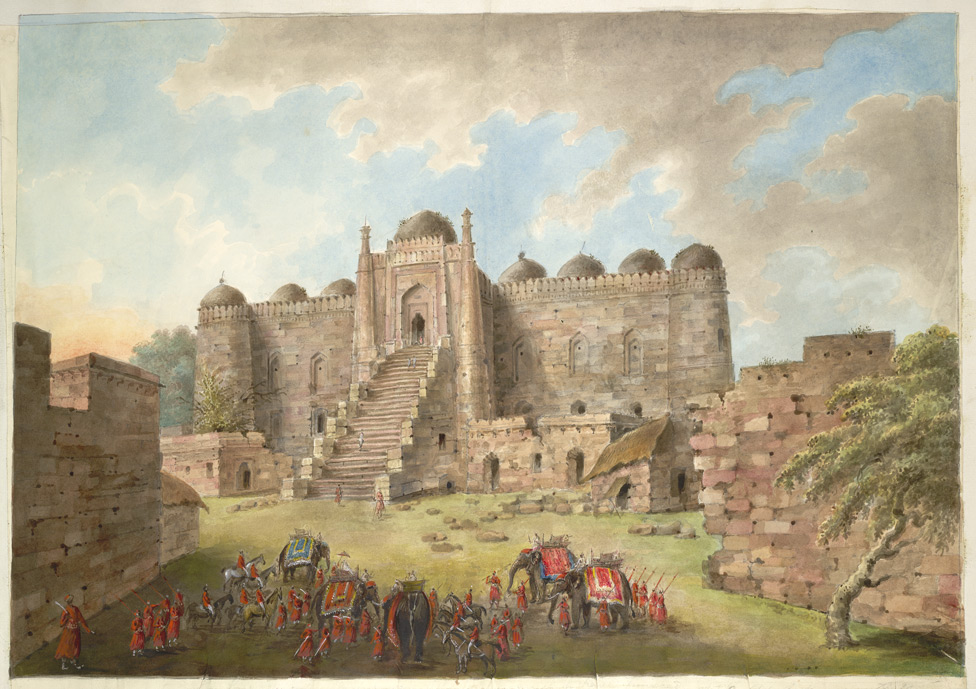FWP:
For background see S. R. Faruqi's choices. For more on Ghalib's unpublished verses, see the discussion in {4,8x}.
What does it mean to compose poetry? To the heart, it's a way of opening a gate or door-- perhaps even a rather forceful way. How violent is the process? It's not quite clear. The unusual word istikāk deserves some 'fresh word' credit in its own right. It can mean 'striking' or 'clashing' (see the definition above)-- perhaps of the door rattling and groaning against the door-frame, but also with some possible suggestion of someone banging on the door. This martial possibility is enhanced by the meaning of fatḥ as not only 'opening' but also 'conquering'. Perhaps composing poetry requires the poet to force his way through some barrier. What kind of a gateway is it? Where does it take him? Who or what is behind it? As so often, we're left to decide for ourselves.
But the main emphasis is on the sound of the the creaking or groaning of the rusty metal door-hinges as they reluctantly give way. This is the sound that's equated with the scratching of the pen. In fact just such sound effects are already precisely and most enjoyably built into the word ṣarīr (see the definition above).
And all that takes place 'here'. Does that mean 'here' on earth, among us humans? Or 'here' among poets? Or 'here' among some special group of poets who have the right 'style/manner'? Or perhaps simply 'here' where Ghalib himself sits writing? The verse gives us no information about how many poets can pull off this remarkable door-opening feat.
Compare {169,13}, in which the 'scratching of the pen' is, more melodiously, the 'voice of an angel'.

Asi:
When we express poetry/speech-- that is, when we write verses-- then for our heart an opening is created, as if the sound that comes from our pen at the time of writing is the sound that comes whena door or a door-panel is opened. So how is it possible for 'the gate not to be conquered'?
== Asi, p. 186